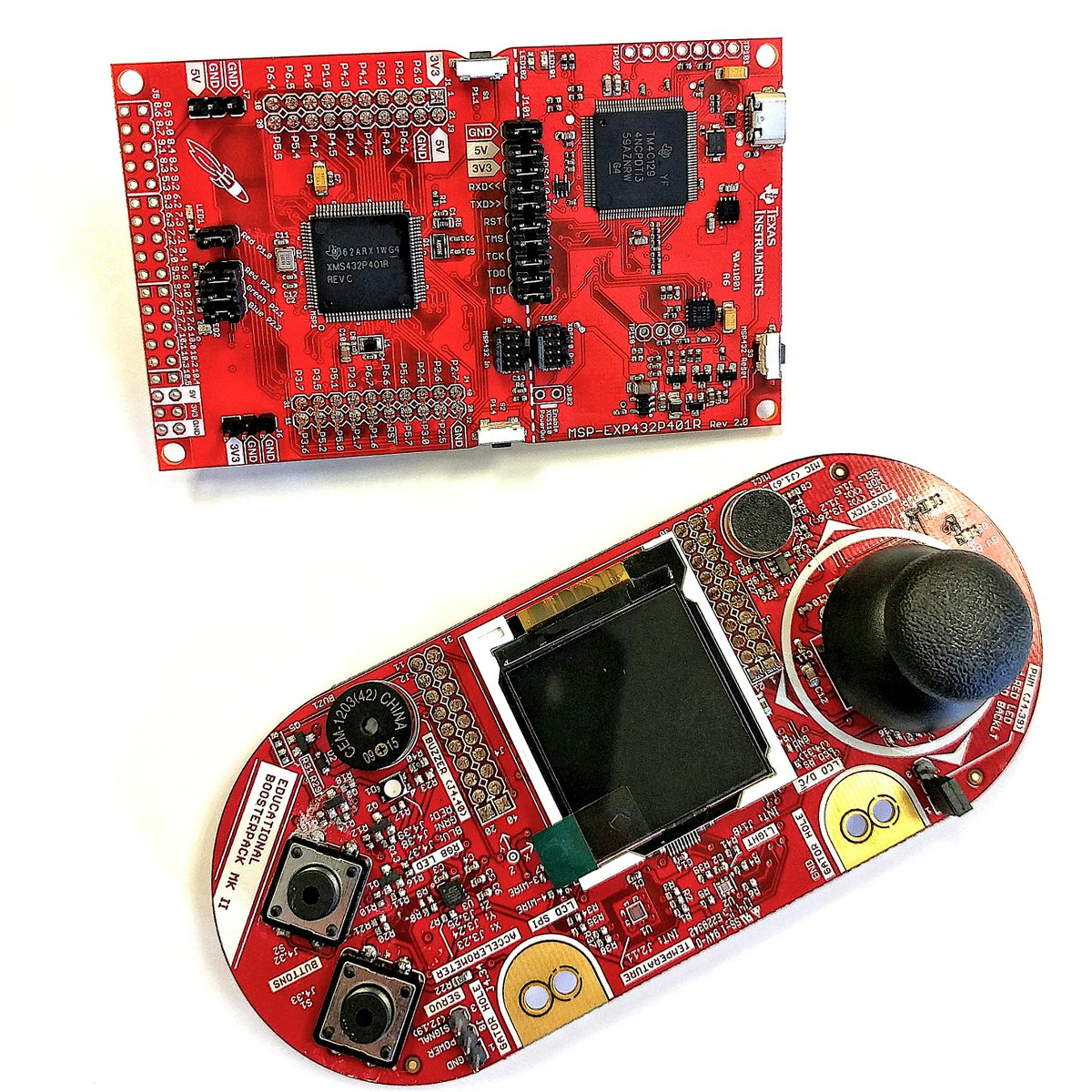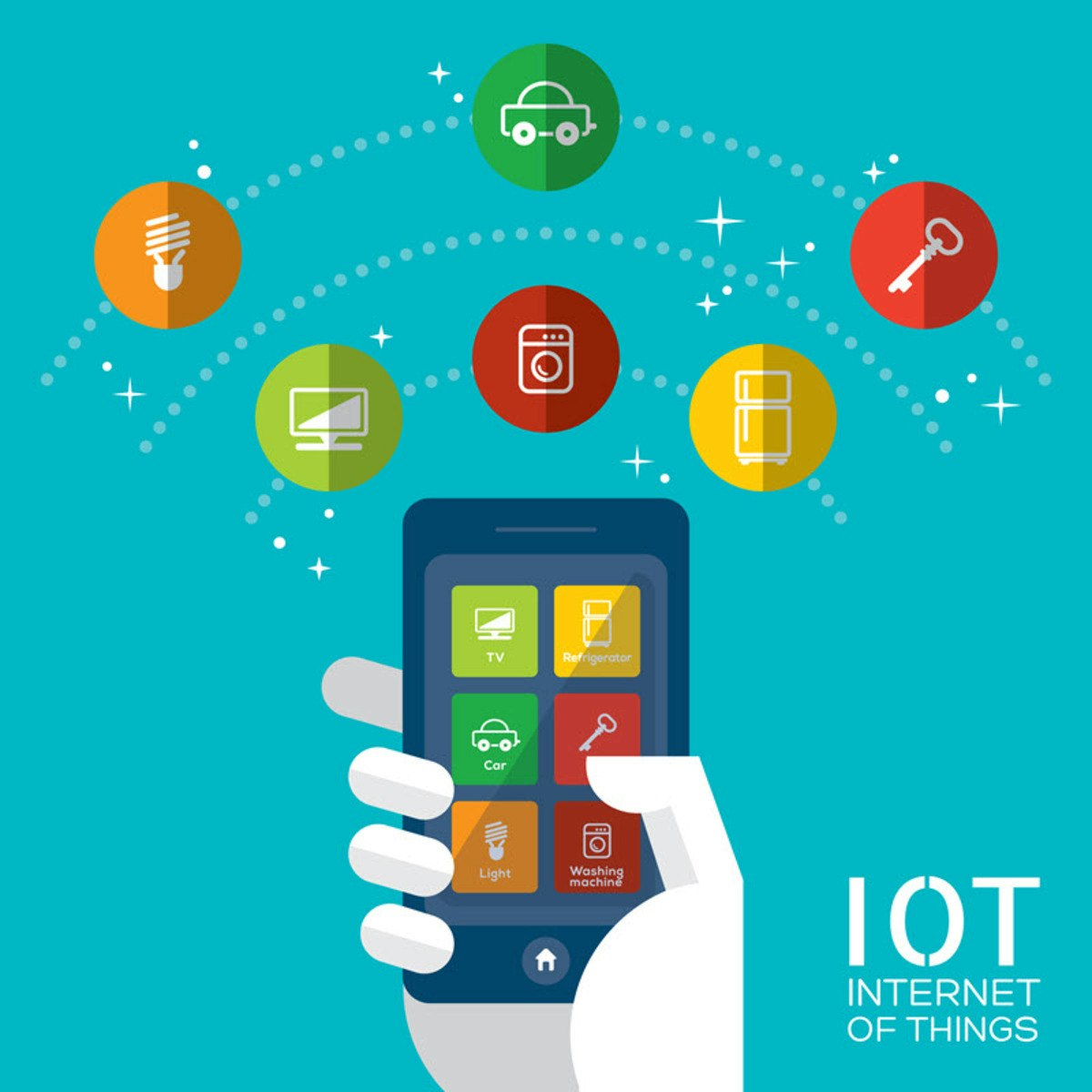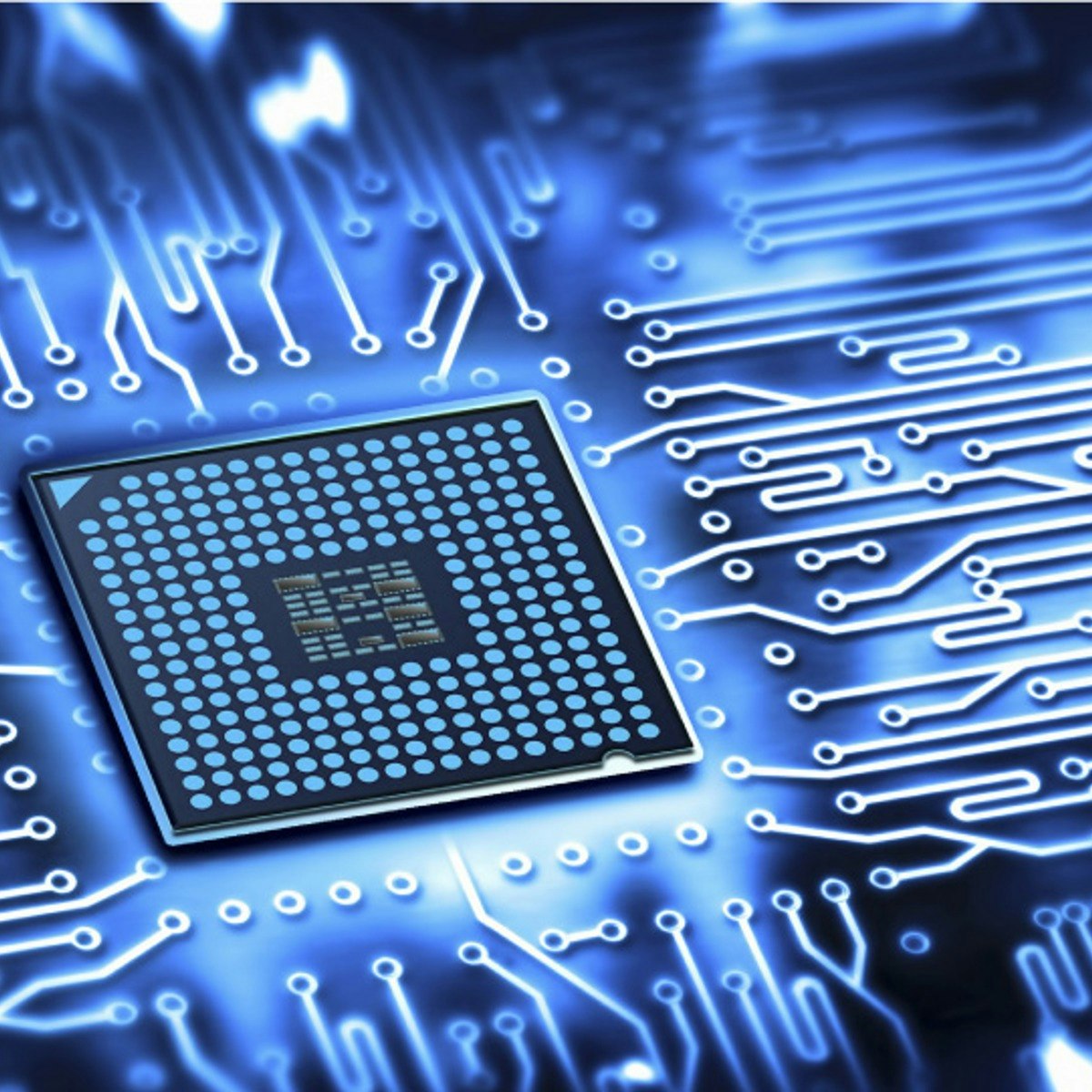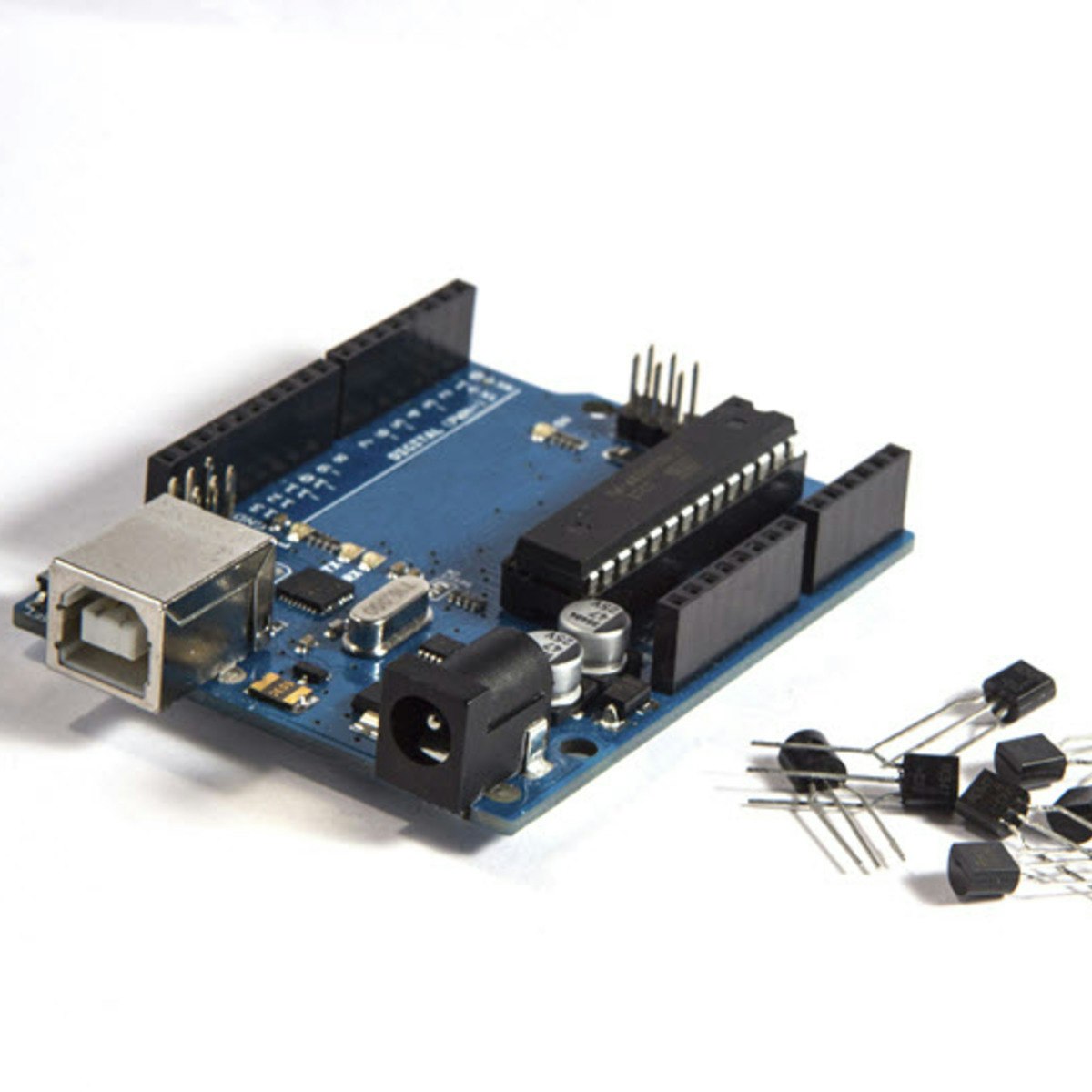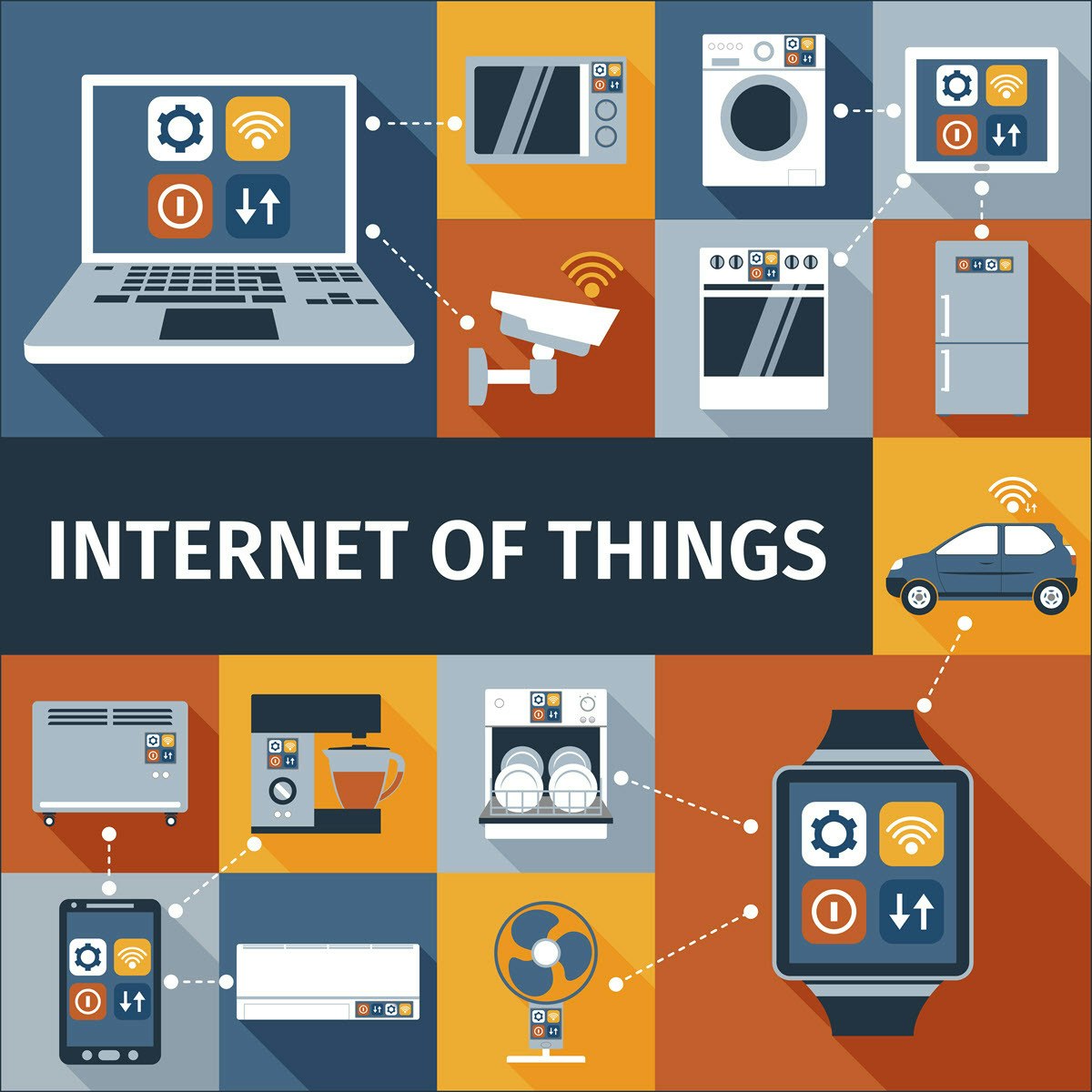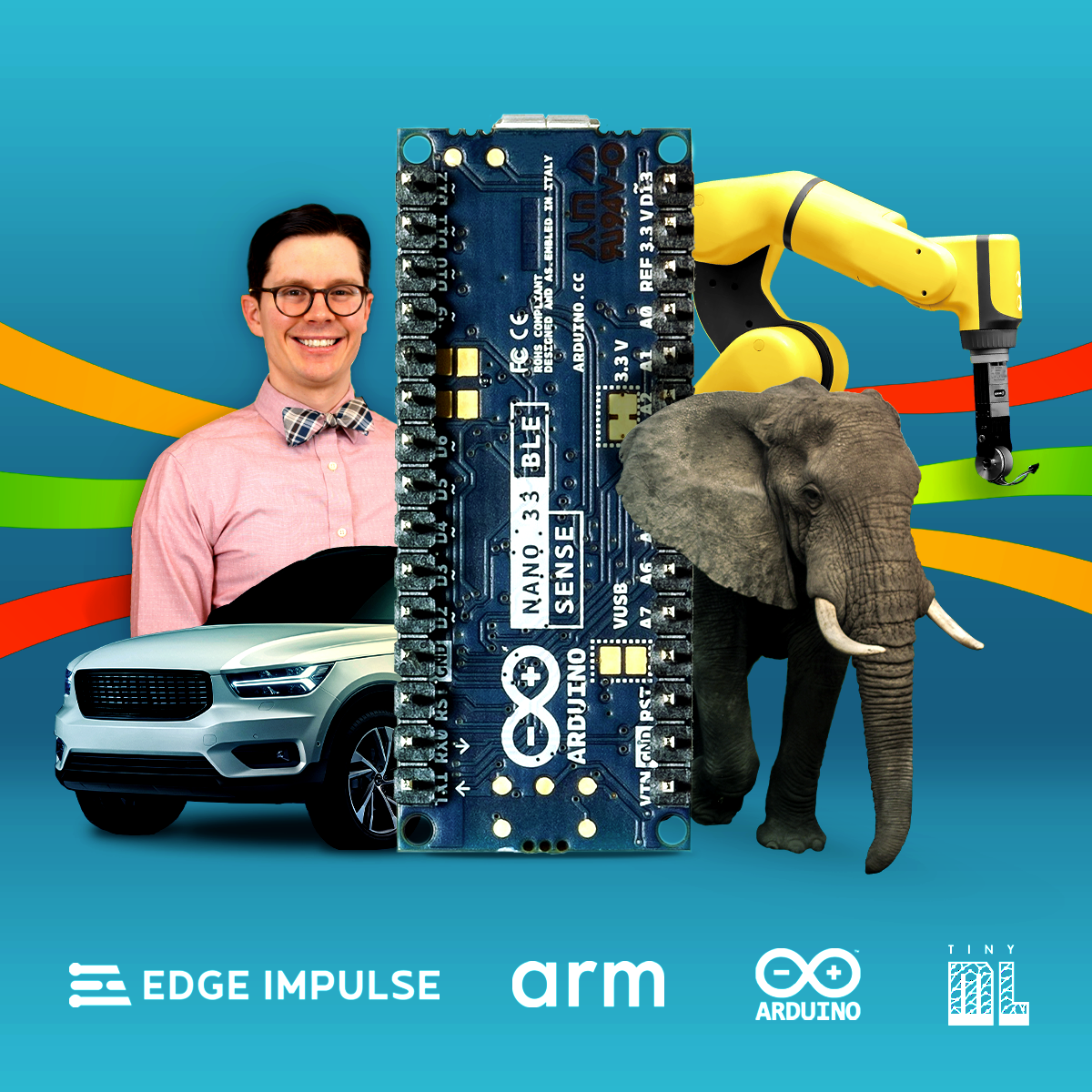Microcontrollers
Introduction to Microcontrollers
A microcontroller, often abbreviated as MCU, is essentially a small, self-contained computer on a single integrated circuit (IC). It's designed to govern a specific operation within a larger system, known as an embedded system. Think of it as the dedicated brain for a particular task in an electronic device. These compact chips are ubiquitous in modern life, found in everything from your car's engine control system and home appliances to medical devices and industrial robots. The beauty of a microcontroller lies in its integration; it typically includes a central processing unit (CPU), memory, and input/output (I/O) peripherals all on one chip, allowing it to function without needing many external components.
Working with microcontrollers can be quite engaging. Imagine designing a device that interacts with the physical world – perhaps a small robot that navigates a maze, a weather station that logs temperature and humidity, or a smart home gadget you've conceptualized. Microcontrollers are the key to bringing such projects to life. Furthermore, the field is constantly evolving, with new advancements in processing power, energy efficiency, and specialized features creating exciting possibilities for innovation. For those who enjoy a blend of hardware and software, problem-solving, and seeing tangible results from their work, the world of microcontrollers offers a rewarding path.
What Exactly is a Microcontroller? Diving Deeper
Defining the Microcontroller and Its Basic Functions
At its core, a microcontroller is a compact integrated circuit (IC) designed to control a specific operation in an embedded system. Often referred to as an MCU (Microcontroller Unit), it's a tiny computer on a single chip. This chip isn't like the powerful processor in your laptop or desktop computer, which is designed for a wide range of general-purpose tasks. Instead, a microcontroller is optimized for a dedicated function. For example, in a microwave oven, a microcontroller is responsible for interpreting button presses, controlling the cooking time and power level, and displaying information on its small screen. Similarly, your car likely has dozens of microcontrollers, each managing specific systems like the anti-lock brakes, engine timing, or power windows.
The basic functionality of a microcontroller involves receiving input, processing that input according to a program stored in its memory, and then producing an output. The inputs can come from sensors (detecting light, temperature, motion, etc.) or user interactions (like button presses). The microcontroller's CPU then executes a set of instructions – the program – to make decisions based on these inputs. Finally, it uses its output peripherals to control other components, such as turning on an LED, spinning a motor, or sending data to another device. This input-process-output cycle is fundamental to how microcontrollers operate and enable the control of countless electronic devices.
To make this more concrete, let's consider a simple example: a basic thermostat. A temperature sensor (input) provides data to the microcontroller. The microcontroller is programmed with a desired temperature. It continuously compares the sensor's reading to this setpoint. If the room is too cold, the microcontroller sends a signal (output) to turn on the heater. Once the desired temperature is reached, it sends another signal to turn the heater off. This continuous monitoring and control is a classic example of a microcontroller at work.
Microcontrollers vs. Microprocessors vs. Embedded Systems
It's common for beginners to get microcontrollers and microprocessors confused, as they are both "brains" of electronic systems. The key difference lies in their integration and intended use. A microprocessor (like the CPU in your PC) is primarily a processing unit and typically requires external chips for memory (RAM and storage) and input/output (I/O) peripherals to function. Think of it as needing a supporting cast of components to make a complete computer system.
A microcontroller, on the other hand, is a more self-contained system. It integrates the CPU, memory (both program memory like Flash, and data memory like RAM), and I/O ports onto a single chip. This "all-in-one" design makes microcontrollers ideal for dedicated control tasks where space, cost, and power consumption are often critical factors. They are designed to be embedded within a larger device to perform a specific function, rather than to run a full-fledged operating system and multiple applications like a microprocessor in a PC.
The term "embedded system" refers to a computer system with a dedicated function within a larger mechanical or electrical system. So, a microcontroller is often the core component of an embedded system. The microwave oven we discussed earlier is an embedded system, and the microcontroller is its heart. Similarly, an anti-lock braking system in a car is an embedded system, with its own dedicated microcontroller. Essentially, an embedded system is the complete package designed for a specific task, and the microcontroller is the intelligent chip that runs the show within that package. You could say a microcontroller is a component used to build an embedded system, while a microprocessor is a more general-purpose component that could be part of a larger computing system, which itself might contain several embedded systems.
A Brief History and Their Modern Significance
The story of the microcontroller is intertwined with the evolution of integrated circuit technology. While the first microprocessor (the Intel 4004) arrived in 1971, the concept of integrating a CPU, memory, and I/O onto a single chip specifically for control applications followed. Early microcontrollers in the 1970s were relatively simple, often 4-bit or 8-bit devices, but they revolutionized the design of many products by replacing complex analog or electromechanical control systems with more reliable and flexible digital control.
Throughout the 1980s and 1990s, microcontrollers became more powerful, with increased processing capabilities (16-bit and then 32-bit architectures), more memory, and a wider array of integrated peripherals. This allowed them to take on more sophisticated tasks in consumer electronics, automotive systems, and industrial controls. The reduction in size and cost also made it feasible to embed intelligence into an ever-increasing range of devices.
Today, microcontrollers are indispensable. They are the invisible workhorses powering countless devices that we interact with daily, from the smart appliances in our homes and the complex systems in our cars to sophisticated medical equipment and industrial robots. The rise of the Internet of Things (IoT) has further amplified their significance, as microcontrollers are the key enablers for connecting everyday objects to the internet, allowing them to send data and be controlled remotely. Their ability to provide processing power at low cost and with minimal energy consumption makes them perfectly suited for the billions of smart, connected devices that constitute the IoT. The ongoing development of microcontrollers focuses on even lower power consumption, enhanced security features (crucial for IoT), and even the integration of artificial intelligence (AI) capabilities at the "edge" (meaning directly on the device).
Key Components and Architecture
Understanding the internal workings of a microcontroller provides a deeper appreciation for its capabilities. While the specific details can vary greatly between different microcontroller families and manufacturers, there are fundamental components and architectural concepts that are common to most.
The Core: CPU, Memory, and I/O Peripherals
The three essential building blocks of any microcontroller are the Central Processing Unit (CPU), Memory, and Input/Output (I/O) Peripherals. These components work in concert to execute programs and interact with the external world.
The CPU is the brain of the microcontroller. It fetches instructions from memory, decodes them, and then executes them. These instructions can range from simple arithmetic and logical operations to more complex tasks depending on the CPU's architecture (e.g., 8-bit, 16-bit, or 32-bit). The CPU controls all the operations within the microcontroller.
Memory in a microcontroller is typically divided into two main types: Program Memory and Data Memory. Program Memory, often a type of non-volatile memory like Flash memory or ROM (Read-Only Memory), stores the actual program or firmware that the microcontroller executes. Non-volatile means the information is retained even when the power is turned off. This is where your C code or Assembly instructions reside after being compiled and loaded onto the chip. Data Memory, usually RAM (Random-Access Memory), is volatile memory used for temporary storage of data while the program is running. This is where variables are stored, calculations are performed, and the program stack operates. Being volatile means its contents are lost when power is removed. Some microcontrollers also include a small amount of EEPROM (Electrically Erasable Programmable Read-Only Memory) or similar non-volatile data storage for parameters that need to be saved even when the device is powered off, like calibration settings or user preferences.
Input/Output (I/O) Peripherals are the microcontroller's interface to the outside world. These are the means by which the microcontroller senses and controls external devices. Common I/O peripherals include:
- General Purpose Input/Output (GPIO) pins: These are digital pins that can be configured as either inputs (to read the state of a switch or sensor) or outputs (to control an LED or motor).
- Analog-to-Digital Converters (ADCs): Many real-world signals are analog (like the output of a temperature sensor). ADCs convert these analog voltages into digital values that the CPU can process.
- Digital-to-Analog Converters (DACs): These perform the opposite function of ADCs, converting digital values from the CPU into analog voltages, perhaps to control the brightness of an LED or the speed of a motor.
- Timers/Counters: These are crucial for generating precise delays, measuring time intervals, creating pulse-width modulation (PWM) signals (often used for motor control or dimming LEDs), or counting external events.
- Communication Interfaces: These allow the microcontroller to communicate with other devices or systems. Common serial communication protocols include UART (Universal Asynchronous Receiver/Transmitter), SPI (Serial Peripheral Interface), and I2C (Inter-Integrated Circuit). More advanced microcontrollers might also include interfaces like USB, Ethernet, or CAN (Controller Area Network, common in automotive applications).
These core components, tightly integrated on a single chip, give the microcontroller its power and versatility for embedded control applications.
Common Microcontroller Architectures
When discussing microcontroller architecture, two fundamental models often come up: the Harvard architecture and the von Neumann architecture. These describe how the CPU accesses memory, specifically how it handles program instructions and data.
In a von Neumann architecture, there is a single address space and a single data bus for both program instructions and data. This means the CPU fetches instructions and reads/writes data through the same pathway. While simpler in design, this can create a bottleneck because instructions and data cannot be accessed simultaneously. Most general-purpose computers use a von Neumann architecture, though often with caches to mitigate the bottleneck.
The Harvard architecture, on the other hand, uses separate memory spaces and separate buses for program instructions and data. This allows the CPU to fetch the next instruction from program memory at the same time it is accessing data from data memory. This parallelism can lead to faster execution speeds, as the CPU doesn't have to wait as often. Many microcontrollers, especially those designed for signal processing or real-time control where speed is critical, utilize a Harvard architecture or a modified version of it.
Another architectural distinction relates to the CPU's instruction set: CISC (Complex Instruction Set Computer) versus RISC (Reduced Instruction Set Computer). CISC processors have a large and varied set of instructions, some of which can perform complex operations in a single step. This can make programming in assembly language somewhat easier for certain tasks and can lead to smaller code size. However, these complex instructions often take multiple clock cycles to execute. RISC processors, conversely, use a smaller, highly optimized set of simpler instructions. Each instruction is designed to execute very quickly, often within a single clock cycle. While this might mean that more instructions are needed to perform a complex task, the overall execution can be faster and more predictable. RISC architectures also tend to be more power-efficient. Many modern microcontrollers, including the popular ARM-based ones, employ RISC architectures.
Understanding these architectural differences can help in selecting the right microcontroller for a specific application, considering factors like required processing speed, code size, power consumption, and the nature of the tasks to be performed.
Power Management and Clock Systems
Power management is a critical aspect of microcontroller design, especially for battery-powered devices and applications where energy efficiency is paramount. Microcontrollers are often designed with various low-power modes. These modes allow the device to shut down unused peripherals or even put the CPU into a "sleep" state, consuming minimal current while waiting for an external event or an internal timer to wake it up. Sophisticated power management features might include dynamic voltage and frequency scaling (DVFS), where the clock speed and operating voltage of the CPU are adjusted on the fly based on the processing demand, further optimizing power consumption.
The clock system is the heartbeat of the microcontroller, providing the timing signals that synchronize all its operations. The speed of this clock, measured in Hertz (Hz) – often Megahertz (MHz) or even Gigahertz (GHz) for more powerful MCUs – determines how quickly the CPU can execute instructions. Microcontrollers typically have an internal oscillator that can generate the clock signal, but they often also support the use of an external crystal oscillator for higher precision and stability. Some MCUs feature Phase-Locked Loops (PLLs) which can multiply a lower frequency input clock to a higher frequency for the CPU, while allowing peripherals to run at lower, power-saving frequencies. Careful management of clock sources and speeds is essential for balancing performance and power consumption.
The choice of clock source and the implementation of power-saving modes are crucial design considerations. For example, an IoT sensor that only needs to wake up, take a reading, transmit data, and then go back to sleep for an extended period will prioritize ultra-low power sleep modes and a quick wake-up time over raw processing speed. Conversely, a microcontroller in an industrial motor controller might need to run at a consistently high clock speed to perform real-time calculations and respond quickly to feedback.
Programming and Development Tools
Bringing a microcontroller to life involves writing software (often called firmware when it's embedded in hardware) and using various tools to compile, load, and debug that software. The ecosystem of programming languages and development tools is a vital part of working with microcontrollers.
Common Programming Languages: C and Assembly
Historically, and still very commonly today, C and Assembly language are the primary languages used for microcontroller programming.
C is a high-level language (compared to Assembly) that offers a good balance of control over hardware and ease of use. It allows for structured programming, making code more readable and maintainable. C compilers are available for virtually all microcontrollers, and it provides direct memory manipulation capabilities which are often necessary when interacting with microcontroller peripherals. Most developers working with microcontrollers will spend a significant amount of time writing C code.
Assembly language is a low-level language that is specific to a particular CPU architecture. It provides the most direct control over the microcontroller's hardware, allowing programmers to write highly optimized code for speed or size. However, Assembly is also more complex and time-consuming to write and debug, and code written for one microcontroller family is typically not portable to another. While entire projects are less commonly written purely in Assembly today, it's still used for performance-critical sections of code, bootloaders, or when interacting very directly with hardware registers. Sometimes, C code will include inline Assembly for specific tasks.
While C and Assembly remain dominant, other languages are also finding their way into the microcontroller world, especially with more powerful 32-bit MCUs. C++ is often used for larger embedded projects due to its object-oriented features, which can help in managing complexity. For certain platforms and ecosystems (like Arduino, which uses a simplified version of C++), it's the standard. More recently, languages like MicroPython (a lean version of Python for microcontrollers) and even JavaScript (for some IoT-focused MCUs) have emerged, offering faster development cycles and easier learning curves for those already familiar with these higher-level languages, though often with some performance or resource overhead. The choice of language often depends on the microcontroller's capabilities, the complexity of the project, performance requirements, and the developer's familiarity.
The following courses can help you get started with C programming for microcontrollers.
For those interested in diving deep into specific microcontroller architectures using Assembly and C, these books are highly recommended.
Integrated Development Environments (IDEs)
An Integrated Development Environment (IDE) is a software application that provides comprehensive facilities to computer programmers for software development. For microcontroller development, IDEs are crucial tools that typically bundle a code editor, a compiler (or a way to interface with one), a debugger, and project management features into a single interface.
Many microcontroller manufacturers provide their own IDEs tailored for their specific families of devices. Examples include Microchip's MPLAB X IDE for PIC microcontrollers and AVRs, STMicroelectronics' STM32CubeIDE for their STM32 series, and Texas Instruments' Code Composer Studio for their MSP430 and other MCUs. These vendor-specific IDEs often come with tools for configuring peripherals, managing libraries, and sometimes even graphical code generation tools to simplify setup.
Besides vendor-specific IDEs, there are also more general-purpose or open-source options. The Arduino IDE is extremely popular for beginners and hobbyists due to its simplicity, though it's primarily focused on the Arduino platform. For more advanced development, IDEs like Eclipse (often with plugins for embedded C/C++ development) or Visual Studio Code (with extensions like PlatformIO) are widely used. These offer powerful editing features, extensibility, and support for a broad range of microcontrollers and toolchains. The choice of IDE often comes down to personal preference, the specific microcontroller being used, and the complexity of the project.
These courses offer introductions to embedded systems development, often including the use of IDEs and development boards.
Debugging and Simulation Tools
Debugging is an inevitable and often challenging part of microcontroller development. When your code doesn't work as expected on the hardware, you need tools to figure out why. Debuggers allow you to step through your code line by line as it executes on the microcontroller, inspect the values of variables and registers, and set breakpoints to pause execution at specific points. This is typically done using an in-circuit debugger (ICD) or an on-chip debugger (OCD), which is a piece of hardware that connects your computer to the microcontroller on your development board via a debug interface like JTAG or SWD.
Simulators, on the other hand, allow you to run and test your microcontroller code entirely in software on your computer, without needing the actual hardware. Simulators model the behavior of the microcontroller's CPU and sometimes its peripherals. This can be useful for early-stage development and testing of algorithms, or when hardware is not yet available. However, simulators may not perfectly replicate the behavior of real-world hardware, especially when it comes to timing-sensitive operations or interaction with complex external components. Most professional IDEs for microcontroller development include integrated debugging capabilities, and some also offer simulation tools.
Beyond IDE-integrated tools, standalone logic analyzers and oscilloscopes are invaluable hardware tools for debugging. A logic analyzer can capture and display multiple digital signals from your microcontroller and connected components, helping you verify communication protocols or the timing of control signals. An oscilloscope allows you to view analog signals, which is crucial when working with sensors or analog outputs. While these are physical tools rather than software, they are essential companions for serious microcontroller development and troubleshooting.
This course introduces the ARM Mbed platform, which includes development and debugging tools.
Applications of Microcontrollers
Microcontrollers are the hidden engines in a vast array of modern technologies. Their ability to provide dedicated control at a low cost and with high efficiency has made them indispensable across numerous sectors.
Consumer Electronics and IoT Devices
Perhaps the most visible application area for many people is in consumer electronics. Almost every smart appliance in your home, from washing machines and refrigerators to coffee makers and smart speakers, contains one or more microcontrollers. They manage user interfaces, control motors and heating elements, monitor sensors, and handle communication. Think about your TV remote control, your wireless earbuds, or even sophisticated toys – microcontrollers are orchestrating their functions.
The explosion of the Internet of Things (IoT) is heavily reliant on microcontrollers. Smart home devices like smart thermostats, smart lighting systems, and security cameras all use MCUs to connect to the internet, process data from sensors, and control actuators. Wearable technology, such as fitness trackers and smartwatches, is another significant IoT application domain where low-power microcontrollers are essential for processing sensor data, managing displays, and communicating with smartphones. The ability of MCUs to offer connectivity (like Wi-Fi or Bluetooth) combined with processing power in a small, energy-efficient package is fundamental to the IoT revolution.
These courses explore IoT applications and microcontroller use in consumer-facing devices.
Industrial Automation and Robotics
In the industrial realm, microcontrollers are workhorses for automation and control. They are embedded in Programmable Logic Controllers (PLCs), which manage complex machinery and manufacturing processes on factory floors. Microcontrollers handle tasks like motor control with high precision, reading data from industrial sensors (temperature, pressure, flow rate), and actuating valves and switches. Their robustness and reliability are key in these demanding environments.
Robotics is another field where microcontrollers are central. From simple educational robots to sophisticated industrial robotic arms used in assembly lines or logistics, MCUs control the motors for movement, process information from sensors (like cameras, lidar, or proximity sensors), and execute the robot's programmed tasks. The real-time processing capabilities of microcontrollers are crucial for the precise and coordinated movements required in robotics. As robots become more autonomous and intelligent, the demands on their embedded microcontrollers for processing power and connectivity continue to grow.
The following courses delve into industrial applications and robotics involving microcontrollers.
For further reading on industrial applications, consider these resources.
Medical Devices and Automotive Systems
The medical field increasingly relies on microcontrollers for a wide range of diagnostic, monitoring, and therapeutic devices. Portable medical instruments like blood glucose meters, pulse oximeters, and digital thermometers use MCUs to process sensor readings, display results, and manage power. More complex devices, such as infusion pumps for delivering medication, patient monitoring systems in hospitals, and even implantable devices like pacemakers and defibrillators, depend on the precise control and reliability offered by specialized medical-grade microcontrollers. The ability to integrate analog signal conditioning and ensure functional safety is critical in these life-saving applications.
The automotive industry is one of the largest consumers of microcontrollers. A modern car can contain dozens, sometimes over a hundred, MCUs. They are found in Engine Control Units (ECUs) managing fuel injection and ignition timing, Anti-lock Braking Systems (ABS), airbag deployment systems, power steering, climate control, infotainment systems, and Advanced Driver-Assistance Systems (ADAS). Automotive microcontrollers are designed to operate in harsh environments (extreme temperatures and vibrations) and must meet stringent safety and reliability standards, such as ISO 26262. The trend towards electric vehicles (EVs) and autonomous driving is further increasing the number and sophistication of microcontrollers required in cars.
These courses touch upon microcontrollers in specialized systems, including those relevant to medical and automotive contexts.
For deeper insights into automotive microcontrollers, these books are valuable.
Formal Education Pathways
For those aspiring to a career centered around microcontrollers, a structured educational path often provides the most comprehensive grounding in the underlying principles and advanced concepts. This typically involves a focus on STEM subjects and progresses through university-level engineering programs.
Pre-university Preparation
A strong foundation in Science, Technology, Engineering, and Mathematics (STEM) subjects during high school is highly beneficial. Physics courses will introduce fundamental concepts of electricity, magnetism, and circuits. Mathematics, particularly algebra, trigonometry, and calculus, is essential for understanding engineering principles. Computer science or programming classes can provide an early introduction to coding logic and problem-solving, which are directly applicable to microcontroller programming.
Beyond coursework, engaging in extracurricular activities like robotics clubs, electronics clubs, or science fairs can provide invaluable hands-on experience. These activities allow students to experiment with basic electronics, sensors, motors, and sometimes even simple microcontrollers like those found in Arduino kits. Participating in coding competitions or personal electronics projects can also foster practical skills and a passion for the field. Building a portfolio of small projects can be a great way to demonstrate interest and aptitude when applying to university programs.
Consider exploring introductory courses like these to get a feel for electronics and programming.
Undergraduate and Graduate Engineering Programs
The most common academic route for specializing in microcontrollers is through a Bachelor of Science (B.S.) degree in Electrical Engineering (EE), Computer Engineering (CE), or a closely related field like Mechatronics Engineering or Robotics Engineering. These programs typically require a strong background in mathematics and physics.
Core coursework in an EE or CE undergraduate program relevant to microcontrollers usually includes:
- Circuit Theory: Understanding the fundamentals of electrical circuits, components, and analysis techniques.
- Digital Logic Design: Learning about logic gates, Boolean algebra, and the design of digital circuits that form the basis of microcontrollers.
- Computer Organization and Architecture: Studying how computers, including microprocessors and microcontrollers, are structured and operate at a hardware level. [This often covers topics like CPU design, memory systems, and instruction sets.]
- Embedded Systems Design: This is often a key course or series of courses where students learn specifically about microcontroller programming, interfacing with peripherals, real-time operating systems (RTOS), and designing embedded applications.
- Electronics: Covering analog and digital electronics, including transistors, operational amplifiers, and power electronics.
- Programming: Courses in C and/or C++ are standard, as these are the primary languages for embedded systems development.
A Master of Science (M.S.) degree can provide more specialized knowledge and research opportunities. Graduate programs might offer concentrations in areas like VLSI (Very Large Scale Integration) design (which involves designing the microcontrollers themselves), advanced embedded systems, IoT, robotics, or control systems. A master's degree can be beneficial for those seeking research and development roles or more specialized engineering positions.
These courses provide a taste of university-level engineering topics related to microcontrollers.
These books are often used in undergraduate and graduate engineering courses covering computer architecture and specific microcontroller families.
PhD Research Areas
For those with a deep passion for research and innovation in the field, pursuing a Doctor of Philosophy (Ph.D.) offers the opportunity to contribute to the cutting edge of microcontroller technology. Ph.D. research in areas related to microcontrollers is often interdisciplinary, drawing from electrical engineering, computer science, and materials science.
Some prominent research areas include:
- Low-Power and Ultra-Low-Power Design: As devices become smaller and more reliant on battery power (especially in IoT and medical implants), research into new architectures, circuit techniques, and power management strategies to drastically reduce energy consumption is critical.
- AI/ML Integration at the Edge: A significant trend is the incorporation of Artificial Intelligence (AI) and Machine Learning (ML) capabilities directly onto microcontrollers (often called "TinyML" or "Edge AI"). Research focuses on developing energy-efficient AI hardware accelerators, new algorithms suitable for resource-constrained MCUs, and tools to deploy ML models on these devices.
- Security for Embedded Systems: With the proliferation of connected devices, ensuring the security of microcontrollers against cyber threats is paramount. Research areas include developing novel hardware-based security features (like secure enclaves or physically unclonable functions - PUFs), lightweight cryptographic algorithms, and secure firmware update mechanisms.
- Novel Architectures and Materials: Exploring new semiconductor materials, non-volatile memory technologies (like MRAM or FeRAM), and unconventional computing architectures (e.g., neuromorphic computing inspired by the brain) to overcome the limitations of traditional silicon-based CMOS technology.
- Reconfigurable Computing and FPGAs: Research into Field-Programmable Gate Arrays (FPGAs) and their integration with microcontrollers, or even MCUs with reconfigurable logic fabric, allows for hardware that can be adapted to specific tasks after manufacturing.
- Sustainable and Green Electronics: Developing microcontrollers using more environmentally friendly materials and manufacturing processes, as well as designing for easier recycling and reduced electronic waste.
A Ph.D. typically prepares individuals for careers in academic research, advanced R&D roles in industry, or positions in government research labs. It involves several years of intensive research, culminating in a dissertation that presents original contributions to the field.
These advanced courses touch upon some of the research-level topics.
Online and Self-Directed Learning
While formal education provides a strong, structured foundation, the world of microcontrollers is also remarkably accessible through online resources and self-directed learning. For career changers, hobbyists, or even students looking to supplement their studies, a wealth of information and practical learning opportunities exists online.
Feasibility of Self-Study for Entry-Level Roles
It is certainly feasible to gain sufficient knowledge and skills through self-study to qualify for some entry-level roles related to microcontrollers, particularly in areas like embedded systems programming, firmware development for simpler devices, or IoT application development. Many successful engineers in the field have, at least in part, been self-taught, driven by passion and curiosity.
The key to success in self-study is a structured approach, discipline, and a focus on practical application. This means not just reading about microcontrollers but actively working with them. Affordable development boards like Arduino, ESP32, Raspberry Pi Pico, or various STM32 Nucleo boards provide excellent platforms for hands-on learning. Online course platforms offer numerous courses covering everything from basic electronics and C programming to specific microcontroller architectures and embedded systems design.
However, it's important to have realistic expectations. While self-study can get you far, some advanced roles, particularly in hardware design, research, or safety-critical systems, may still heavily favor candidates with formal engineering degrees. For self-taught individuals, building a strong portfolio of personal projects is absolutely crucial to demonstrate skills and passion to potential employers. Contributing to open-source embedded projects can also be a great way to gain experience and visibility.
OpenCourser is an excellent resource for finding courses to build foundational knowledge. You can browse through thousands of courses in engineering and related fields. Utilize the "Save to List" feature on OpenCourser to curate your learning path and compare syllabi to find courses that best fit your goals. The OpenCourser Learner's Guide also offers valuable tips on how to structure your self-learning journey and make the most of online educational resources.
These courses are great starting points for self-learners.
Project-Based Learning Strategies
Project-based learning is arguably the most effective way to learn about microcontrollers. Theory is important, but applying that theory to build something tangible solidifies understanding and develops practical problem-solving skills. Start with simple projects and gradually increase complexity as your confidence and knowledge grow.
Some project ideas for beginners could include:
- Blinking an LED (the "Hello, World!" of microcontrollers)
- Reading a button press to control an LED
- Reading data from a simple sensor (e.g., temperature, light, distance) and displaying it
- Controlling a small motor (e.g., a servo or DC motor)
- Creating a simple alarm system
As you advance, you can tackle more complex projects:
- Building a small robot (e.g., line-follower, obstacle-avoider)
- Developing a data logger that saves sensor readings to an SD card
- Creating an IoT device that sends data to a web server or can be controlled remotely
- Designing a custom game controller
- Interfacing with more complex peripherals like LCD screens, GPS modules, or wireless transceivers
Many online communities and forums are dedicated to microcontroller projects, offering inspiration, tutorials, and help when you get stuck. Documenting your projects, perhaps on a personal blog or a platform like GitHub, is also a great way to showcase your skills.
Consider these project-oriented courses to gain hands-on experience:
Supplementing Formal Education with Online Resources
Even for those pursuing formal engineering degrees, online resources can be incredibly valuable. Online courses can offer alternative explanations of complex topics, provide practical skills that might not be covered in depth in a university curriculum (like specific IDEs or development tools), or allow exploration of specialized areas of interest.
Online platforms often feature courses taught by industry professionals, which can provide insights into real-world applications and best practices. They can also be a great way to prepare for internships or to learn about new microcontroller families or technologies that emerge after you've completed your formal coursework. Furthermore, online tutorials, application notes from manufacturers, and active online communities (like forums and Q&A sites) are indispensable for troubleshooting specific problems and staying up-to-date with the rapidly evolving field of microcontrollers.
Students can use OpenCourser to discover courses that complement their university studies. For example, if a particular module on embedded C programming is challenging, finding a highly-rated online course on the same topic can provide a different perspective and reinforce learning. Similarly, if a university course introduces a specific microcontroller family, online resources can offer more project examples and in-depth tutorials for that particular hardware.
These courses can effectively supplement formal education by providing practical skills and focusing on specific microcontroller platforms.
The following books are excellent supplements for understanding microcontroller basics and programming specific popular architectures.
Career Progression and Job Roles
A background in microcontrollers opens doors to a variety of rewarding career paths in the ever-expanding world of embedded systems and electronics. The skills you develop are in demand across numerous industries, offering opportunities for growth and specialization.
Entry-Level Roles
With a relevant degree or a strong portfolio of projects (especially for self-taught individuals), several entry-level roles become accessible. Common entry-level positions include:
- Embedded Systems Engineer: This is a broad role that can involve designing, developing, testing, and maintaining embedded systems that use microcontrollers. Responsibilities might include writing firmware, selecting hardware components, and debugging system-level issues.
- Firmware Developer/Engineer: This role focuses specifically on writing the software (firmware) that runs on microcontrollers and other embedded devices. This involves low-level programming, often in C or C++, and a deep understanding of the microcontroller's architecture and peripherals.
- Junior Electronics Engineer: In this role, you might be involved in circuit design, PCB layout, testing, and troubleshooting of electronic systems that incorporate microcontrollers.
- IoT Application Developer: With the rise of IoT, there's a growing need for developers who can create applications that interface with microcontroller-based IoT devices, manage data, and develop cloud connectivity.
- Test Engineer (Embedded Systems): This role involves developing and executing test plans to ensure the quality and reliability of microcontroller-based products.
These roles often involve working as part of a larger engineering team and provide excellent opportunities to learn from experienced professionals. Early career roles often emphasize hands-on work with hardware and software, debugging, and problem-solving.
The following courses are designed to equip learners with the fundamental skills needed for entry-level positions in embedded systems.
Mid-Career Specializations
As you gain experience, opportunities for specialization will emerge. The field of microcontrollers is vast, and developing expertise in a particular niche can significantly enhance your career prospects. Some common mid-career specializations include:
- IoT Specialist: Focusing on the design and development of connected devices, including wireless communication protocols (Wi-Fi, Bluetooth, LoRa, Cellular IoT), cloud integration, and IoT security.
- Automotive Embedded Systems Engineer: Specializing in the unique requirements of the automotive industry, such as functional safety (ISO 26262), real-time control systems for engine management or ADAS, and in-vehicle networking (CAN, LIN, Automotive Ethernet).
- Robotics Engineer: Concentrating on the control systems for robots, including motor control, sensor fusion, path planning, and real-time operating systems (RTOS) for robotics applications.
- Medical Device Engineer: Working on the design and development of microcontroller-based medical equipment, adhering to strict regulatory standards (e.g., FDA guidelines) and focusing on reliability and safety.
- Low-Power Systems Specialist: Focusing on designing ultra-energy-efficient systems for battery-powered devices, wearables, and remote sensors.
- Embedded Security Engineer: Specializing in securing embedded systems from cyber threats, including developing secure bootloaders, implementing cryptographic protocols, and conducting vulnerability assessments.
- Real-Time Operating Systems (RTOS) Engineer: Gaining deep expertise in configuring, deploying, and developing applications for RTOS environments, which are crucial for systems requiring deterministic timing behavior.
Mid-career roles often involve more responsibility, such as leading small teams, architecting more complex systems, or taking ownership of critical product features.
These courses can help you specialize in areas like IoT and advanced embedded systems.
Leadership Opportunities
With significant experience and a proven track record, individuals with microcontroller expertise can advance into leadership and management positions. These roles often require a blend of deep technical knowledge, project management skills, and the ability to lead and mentor teams.
Leadership opportunities can include:
- Principal Embedded Systems Engineer / Architect: Taking the technical lead on complex projects, defining system architecture, making key technology choices, and mentoring junior engineers.
- Engineering Manager / Team Lead: Managing a team of embedded systems or firmware engineers, overseeing project execution, resource allocation, and career development for team members.
- R&D Manager: Leading research and development efforts for new microcontroller-based products or technologies, exploring innovative solutions, and staying ahead of industry trends.
- Project Manager (Embedded Systems): Focusing on the planning, execution, and delivery of embedded systems projects, managing timelines, budgets, and stakeholder communication.
- Product Manager (Embedded Products): Defining the vision and strategy for microcontroller-based products, understanding market needs, and working with engineering teams to bring those products to life.
- Chief Technology Officer (CTO) / VP of Engineering (in smaller companies or startups): Providing overall technical leadership and direction for the company's engineering efforts, particularly if embedded systems are core to the business.
Advancement into leadership often involves developing strong communication, strategic thinking, and interpersonal skills, in addition to maintaining technical proficiency. Continuous learning is also vital, as the field of microcontrollers and embedded systems is constantly evolving.
If you are considering a career shift or are new to the field, remember that the journey into microcontrollers is a marathon, not a sprint. It requires dedication and continuous learning. However, the demand for skilled professionals in this area is robust, driven by the increasing intelligence and connectivity of devices all around us. According to the U.S. Bureau of Labor Statistics, overall employment of electrical and electronics engineers is projected to grow, with many openings arising from the need to replace workers and from growth in areas like IoT and automation. While the path can be challenging, the opportunities to contribute to innovative technologies and build a fulfilling career are significant. Don't be discouraged by initial hurdles; focus on building a solid foundation and gaining practical experience through projects. Your persistence can lead to a very rewarding career.
To explore various career paths and see real-time job listings, you can browse sites like ZipRecruiter or specialized engineering job boards.
Challenges in Microcontroller Development
While working with microcontrollers can be incredibly rewarding, it's not without its challenges. Developers often face a delicate balancing act between various constraints and requirements. Understanding these challenges is crucial for anyone looking to enter or advance in this field.
Power Efficiency vs. Performance Trade-offs
One of the most common and persistent challenges in microcontroller development is the trade-off between power efficiency and processing performance. For many applications, especially battery-operated devices like wearables, remote sensors, or medical implants, minimizing power consumption is paramount to extend battery life. This often means selecting microcontrollers with lower clock speeds, simpler architectures, and aggressive power-saving modes. However, these choices can limit the processing power available for complex algorithms or fast response times.
Conversely, applications requiring significant computational power, such as real-time signal processing, complex motor control, or running machine learning inferences, might necessitate more powerful microcontrollers with faster clock speeds and more sophisticated cores. These higher-performance MCUs typically consume more power. Developers must carefully analyze the application's requirements to find the right balance. This might involve selecting an MCU with a good "performance-per-watt" ratio, utilizing various sleep modes intelligently, optimizing algorithms for efficiency, and offloading tasks to specialized hardware accelerators if available.
The challenge is compounded by the fact that user expectations for both longer battery life and more features (which often require more processing) are constantly increasing. This drives continuous innovation in low-power microcontroller design and power management techniques.
Security Vulnerabilities in IoT Applications
The explosion of Internet of Things (IoT) devices has brought incredible convenience and connectivity, but it has also introduced significant security challenges. Many IoT devices are built around microcontrollers, and if these devices are not properly secured, they can become vulnerable to a wide range of cyberattacks. These attacks could compromise user data, disrupt services, or even allow attackers to take control of physical systems.
Securing microcontroller-based IoT devices is complex due to several factors. These devices are often resource-constrained (limited processing power, memory, and energy), making it difficult to implement traditional heavyweight security software. They may be deployed in physically accessible locations, making them susceptible to tampering. Furthermore, the long lifecycle of some embedded devices means they might not receive regular security updates, leaving known vulnerabilities unpatched. Common vulnerabilities can include weak or default passwords, insecure network communication, lack of secure firmware update mechanisms, and unprotected data storage.
Addressing these vulnerabilities requires a multi-layered security approach, starting from the hardware level (e.g., secure boot, hardware cryptographic accelerators, memory protection units) to the firmware (e.g., secure coding practices, encrypted communication, authenticated updates) and the cloud backend. The industry is increasingly focusing on developing microcontrollers with built-in security features and providing developers with tools and guidelines for building more secure IoT applications.
This course discusses the importance of security in IoT device architecture.
Obsolescence Risks and Rapid Technological Change
The electronics industry is characterized by rapid technological advancement, and microcontrollers are no exception. New and improved MCUs with better performance, lower power consumption, and more integrated features are constantly being introduced. While this innovation is generally positive, it also presents a challenge in terms of component obsolescence.
A specific microcontroller part that is chosen for a product design today might become "End-of-Life" (EOL) or "Not Recommended for New Designs" (NRND) by the manufacturer a few years down the line. This can be a major issue for products with long lifecycles, such as industrial equipment, medical devices, or automotive systems. If a critical microcontroller becomes obsolete, manufacturers may need to undertake costly redesigns to incorporate a new part, which can involve significant software changes, re-testing, and re-certification.
Managing obsolescence risk requires careful component selection from the outset, choosing manufacturers with good track records for long-term support, and designing systems with some level of flexibility to accommodate potential component changes. It also highlights the importance of staying current with industry trends and new technologies. For developers, this means continuous learning and adapting to new microcontroller architectures, development tools, and programming paradigms. While challenging, this dynamic nature also keeps the field exciting and full of learning opportunities.
Future Trends in Microcontrollers
The world of microcontrollers is anything but static. Driven by the demands of emerging technologies and evolving user expectations, MCUs are continuously advancing. Several key trends are shaping the future of these ubiquitous chips, promising even more powerful, efficient, and intelligent embedded solutions.
AI/ML Integration at the Edge
One of the most significant trends is the integration of Artificial Intelligence (AI) and Machine Learning (ML) capabilities directly onto microcontrollers. This is often referred to as "Edge AI," "TinyML," or "Embedded ML." Instead of sending vast amounts of sensor data to the cloud for processing, MCUs are increasingly being equipped to run ML models locally, on the device itself. This enables faster response times (lower latency), reduced bandwidth requirements, improved privacy (as sensitive data doesn't have to leave the device), and continued operation even if an internet connection is lost.
Applications for Edge AI are numerous and expanding rapidly. Imagine smart sensors that can not only collect data but also interpret it – for example, an audio sensor that can recognize specific keywords or anomalies, a vibration sensor on industrial machinery that can predict failures, or a low-power image sensor that can detect a person or a specific object. Microcontroller manufacturers are responding by developing MCUs with dedicated AI/ML hardware accelerators, more on-chip memory, and software tools (like TensorFlow Lite for Microcontrollers or Arm's CMSIS-NN) to optimize and deploy ML models on resource-constrained devices. This trend is set to make everyday objects smarter and more autonomous.
These courses provide an introduction to this exciting and rapidly growing area:
Sustainability-Driven Design Trends
As environmental concerns grow, sustainability is becoming an increasingly important factor in the electronics industry, including microcontroller design and application. This trend manifests in several ways. Firstly, there's a continued push for even greater energy efficiency in MCUs. Lower power consumption not only extends battery life in portable devices but also reduces the overall energy footprint of the billions of embedded systems deployed globally.
Secondly, there's a growing interest in the materials used to manufacture microcontrollers and the manufacturing processes themselves. Research is exploring more environmentally friendly semiconductor materials and fabrication techniques that consume less energy and water and generate less waste. Some companies are also focusing on the "circular economy" for electronics, designing products for easier disassembly, repair, and recycling, which has implications for how microcontrollers and the boards they are on are designed and integrated.
Furthermore, microcontrollers themselves are playing a role in enabling broader sustainability initiatives. For instance, MCUs are critical components in smart grid technologies that optimize energy distribution, in building automation systems that reduce energy consumption, and in precision agriculture systems that minimize water and fertilizer use. The focus on sustainable design is likely to intensify, influencing both how microcontrollers are made and how they are used to create a more resource-efficient world.
Impact of Open-Source Hardware Ecosystems
The rise of open-source hardware, exemplified by platforms like Arduino and the increasing adoption of open-source Instruction Set Architectures (ISAs) like RISC-V, is having a profound impact on the microcontroller landscape. Open-source hardware provides publicly available design specifications, allowing anyone to study, modify, distribute, make, and sell the hardware or devices based on those designs.
Platforms like Arduino have democratized access to microcontroller technology, making it easier for students, hobbyists, artists, and entrepreneurs to experiment with and build electronic projects. This has fostered a vibrant community and a wealth of shared knowledge, tutorials, and open-source libraries, significantly lowering the barrier to entry for embedded development.
The emergence of RISC-V is particularly noteworthy. As an open-standard ISA, RISC-V allows companies and individuals to design their own custom processors and microcontrollers without paying licensing fees to proprietary ISA vendors. This is fostering innovation and competition, leading to a wider variety of specialized MCUs tailored for specific applications. It also offers greater transparency and flexibility, which can be attractive for security-conscious applications or for academic research. While established proprietary architectures from companies like Arm still dominate the market, the open-source hardware movement, and RISC-V in particular, are poised to play an increasingly significant role in shaping the future of microcontrollers by promoting collaboration, customization, and accessibility.
Explore the world of open-source hardware and RISC-V with these courses:
Frequently Asked Questions (Career Focus)
Navigating a career path involving microcontrollers can bring up many questions, especially for those new to the field or considering a transition. Here are answers to some common queries.
What entry-level jobs require microcontroller expertise?
Several entry-level roles commonly seek individuals with microcontroller skills. These include positions such as Embedded Systems Engineer (Junior/Associate), where you might work on the overall design and development of systems incorporating MCUs. Firmware Developer or Embedded Software Engineer roles focus more specifically on writing, debugging, and testing the code that runs on microcontrollers. Other possibilities include Electronics Technician roles with a focus on testing and troubleshooting microcontroller-based hardware, or even roles in technical support for companies that produce or use microcontrollers. In the burgeoning IoT space, IoT Application Developer positions may also require a good understanding of how to interface with and program MCUs. The key for entry-level positions is often a solid understanding of C programming, basic electronics, and hands-on experience with a popular microcontroller platform (like Arduino, STM32, ESP32, or PIC), often demonstrated through personal or academic projects.
How transferable are microcontroller skills to other fields?
Microcontroller skills are surprisingly transferable to a variety of other technology fields. The core programming skills, particularly in C and C++, are valuable in many software development domains, including systems programming, game development, and operating systems. The problem-solving and debugging abilities honed while working with hardware and firmware are universally applicable.
Experience with embedded systems often involves understanding communication protocols (SPI, I2C, UART, Ethernet, etc.), which is useful in networking and distributed systems. Knowledge of real-time operating systems (RTOS) can be beneficial in fields requiring deterministic performance. Furthermore, the discipline of working with resource-constrained environments (limited memory, processing power) can instill good habits for writing efficient code, which is valued everywhere. If you specialize in areas like IoT security or embedded AI/ML, these skills are directly transferable to broader cybersecurity or AI/ML roles that might not be strictly tied to microcontrollers.
Is certification necessary for microcontroller-related roles?
Generally, for core engineering roles involving microcontrollers (like Embedded Systems Engineer or Firmware Developer), a formal degree (Bachelor's or Master's in Electrical Engineering, Computer Engineering, or a related field) is often more emphasized by employers than specific certifications. Practical experience and a strong portfolio of projects are also highly valued, sometimes even more so than certifications, especially if you can demonstrate proficiency with relevant tools and technologies.
However, certifications can be beneficial in certain contexts. Vendor-specific certifications (e.g., from Arm, Microchip, or Texas Instruments) might be helpful if you are targeting roles that heavily use those particular product lines. Certifications in related areas like networking (e.g., CompTIA Network+), security (e.g., CompTIA Security+), or specific technologies like AWS IoT or Azure IoT can also add value, especially if you are looking to specialize in IoT applications. For those without a formal degree, relevant certifications combined with a strong project portfolio can help demonstrate commitment and acquired knowledge. Ultimately, while not always a strict requirement, certifications can complement your experience and education, but they rarely replace them entirely for engineering roles.
When considering online courses, especially for career development, it's useful to check if they offer certificates of completion. OpenCourser's Learner's Guide has articles on how to earn certificates from online courses and how to effectively add them to your resume or LinkedIn profile.
What industries hire the most microcontroller specialists?
Microcontroller specialists are in demand across a wide array of industries due to the pervasive nature of embedded systems. Some of the largest employers include:
- Consumer Electronics: Companies producing everything from smartphones and home appliances to wearables and gaming consoles.
- Automotive: A massive industry for MCUs, with applications in engine control, safety systems, infotainment, and the growing EV and autonomous vehicle sectors.
- Industrial Automation and Manufacturing: For robotics, process control, PLCs, and smart factory initiatives (Industry 4.0).
- Medical Devices: For diagnostic equipment, patient monitoring systems, implantable devices, and laboratory instrumentation.
- Aerospace and Defense: For avionics, navigation systems, communication systems, and weaponry.
- Telecommunications: In networking equipment, base stations, and communication devices.
- Semiconductor Manufacturing: Companies that design and fabricate microcontrollers themselves, as well as related integrated circuits.
- Internet of Things (IoT): A rapidly growing sector encompassing smart homes, smart cities, environmental monitoring, and connected industrial equipment.
- Engineering Services and Consultancies: Firms that provide design, development, and consulting services to companies across various industries that need embedded systems expertise.
The breadth of these industries means that there are diverse opportunities available, from working on high-volume consumer products to highly specialized, safety-critical systems.
How competitive is the job market for firmware developers?
The job market for skilled firmware developers and embedded systems engineers is generally considered to be quite strong and competitive, with good prospects. There is a consistent demand for professionals who can write efficient, reliable code for resource-constrained hardware. The U.S. Bureau of Labor Statistics (BLS) projects growth for electrical and electronics engineers, which includes many roles related to microcontrollers and embedded systems. While overall growth rates might vary, the increasing complexity of electronic devices and the proliferation of IoT are continually creating new opportunities.
However, "competitive" also means that employers are looking for candidates with solid skills and, often, specific experience. While entry-level positions exist, roles requiring expertise in specific microcontroller architectures (like ARM Cortex-M), particular RTOSs, communication protocols, or safety-critical development can be more competitive and command higher salaries. Building a strong foundation in C/C++, understanding hardware-software interaction, and gaining practical project experience are key to standing out in this market. Networking within the industry and staying updated with the latest technologies can also provide a competitive edge. According to data from the BLS, the outlook for electrical and electronics engineers is projected to grow, indicating ongoing demand.
Can freelance opportunities exist in microcontroller development?
Yes, freelance and contract opportunities definitely exist in microcontroller development, though they may be more common for experienced engineers. Many companies, especially startups or those with fluctuating project needs, look for specialized freelance talent for specific projects. These projects could involve firmware development for a new product, creating a proof-of-concept, debugging an existing system, or providing expertise in a niche area like low-power design or a particular communication protocol.
To succeed as a freelancer in this field, you typically need a strong portfolio demonstrating a range of skills and successful projects. Good communication, project management abilities, and a professional network are also crucial. Platforms that connect freelancers with clients can be a source of such opportunities, as can direct networking and industry contacts. While freelancing offers flexibility, it also requires self-discipline, business acumen (for finding clients, negotiating contracts, and managing finances), and the ability to stay current with rapidly evolving technologies on your own. Remote work is also increasingly common for these roles, further expanding the possibilities for freelance engagements.
Getting Started with Microcontrollers: ELI5 (Explain Like I'm 5)
Imagine a tiny, tiny robot brain that lives inside your toys, your TV remote, or even the microwave. This little brain is called a microcontroller!
Its job is to do one special thing very well. For example, in your microwave, its special job is to listen to which buttons you press (like "popcorn" or "30 seconds"), then tell the microwave how long to cook and how much power to use. It's like a super-focused helper that only cares about making your microwave work perfectly.
This tiny brain has three main parts:
- The Thinker (CPU): This is the part that actually does the thinking. It reads instructions (like a recipe) that tell it what to do.
- The Memory (Memory): This is where the "recipe" (the program) is stored. It also has a little notepad to remember things while it's working, like how much time is left on the microwave.
- The Senses and Hands (Input/Output): These are how the tiny brain talks to the rest of the microwave. The "senses" are like its ears, listening to button presses. The "hands" are what it uses to control things, like turning the microwave's cooker on or off, or showing numbers on the display.
So, the microcontroller waits for you to tell it something (input, like pressing a button), thinks about what to do based on its recipe (processes it with its CPU using its memory), and then does something (output, like starting the cooking). All this happens on one tiny little chip! They are in almost everything electronic because they are small, don't cost much, and are really good at their specific jobs.
Conclusion
Microcontrollers are fundamental building blocks of modern technology, acting as the embedded intelligence in a vast and ever-growing array of devices that shape our daily lives and industries. From the simplicity of a home appliance to the complexity of an automotive safety system or a sophisticated medical device, these compact "computers-on-a-chip" perform critical control and processing tasks. The journey into understanding and working with microcontrollers can be both challenging and immensely rewarding, offering pathways for innovation, problem-solving, and continuous learning.
Whether you are a student aspiring to a career in engineering, a professional considering a career pivot, or a curious enthusiast eager to bring your own electronic creations to life, the field of microcontrollers offers diverse opportunities. The path may involve formal education, dedicated self-study through online resources like those found on OpenCourser, or a blend of both. Success often hinges on a commitment to hands-on learning, a passion for understanding how things work at both hardware and software levels, and the perseverance to navigate the complexities of embedded systems development. As technology continues to advance, particularly in areas like the Internet of Things and Edge AI, the role and importance of microcontrollers will only continue to expand, ensuring that skills in this domain remain valuable and in demand for the foreseeable future.






